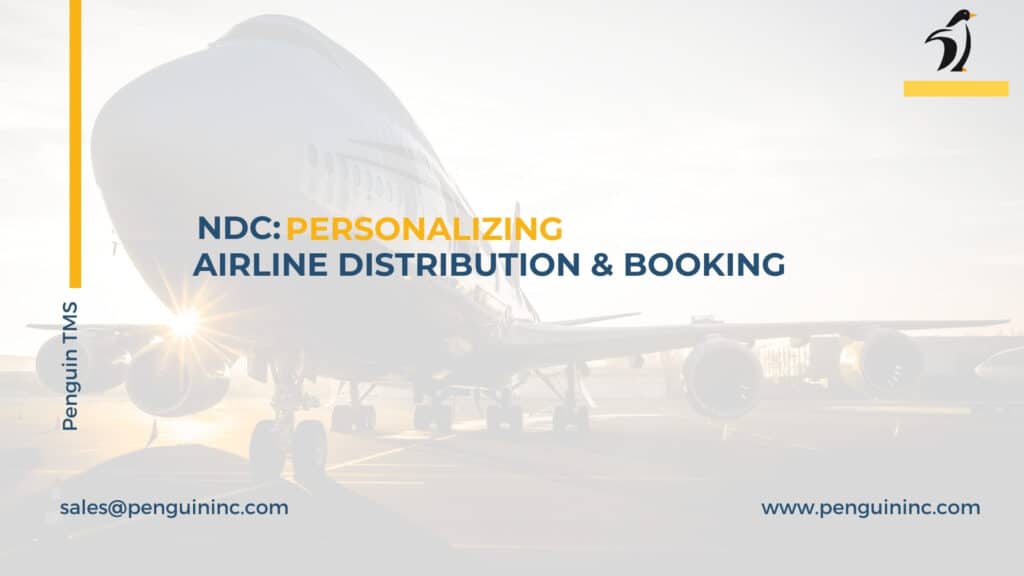
Airfare distribution has transformed dramatically over the past few decades. From early airline reservation systems to today’s complex global distribution systems (GDS), change has been constant. While GDS revolutionized connections between airlines, travel agents, and consumers, it left gaps. These gaps included a lack of personalization, direct communication, and flexibility. New Distribution Capability (NDC) aims to fill those voids. It offers a more sophisticated approach to airfare distribution. NDC is not just a buzzword—it’s a fundamental shift in how airlines market their products and engage with travelers.

New Distribution Capability, commonly abbreviated as NDC, is a travel industry-supported program that 0was developed by IATA (International Air Transport Association). It is essentially a new standard for transmitting data between airlines and travel agencies, designed to modernize and improve how airlines distribute their fares and services. Unlike traditional systems, NDC leverages XML-based messaging protocols, enabling richer and more precise communication. This is a far cry from the archaic, inflexible platforms that have dominated the scene for decades.
The traditional GDS model, while effective in its time, is restricted in its ability to display customized offers and ancillary services. GDS relies on legacy technology, often limiting airlines to basic pricing and availability information. NDC changes this by enabling airlines to distribute dynamic offers directly to consumers. This means that airlines can showcase more than just seat prices; they can present travelers with bundled offers, upsell opportunities, and personalized travel experiences—an evolution that was simply not possible in the traditional model.
Modern travelers expect more than just a seat on a plane—they seek an experience. Whether it’s the option to add extra luggage, upgrade a seat, or secure fast-track security access, travelers want to personalize every aspect of their journey. NDC makes this possible. Airlines can now offer bespoke packages and tailored experiences that resonate with individual preferences. Imagine being able to see unique offers based on your previous travel behavior or receiving targeted discounts that reflect your loyalty. That’s the promise of NDC.
At the heart of NDC’s personalization prowess is dynamic pricing. This capability allows airlines to adjust fares and services in real time, offering passengers deals that are responsive to market demand and personal preferences. Gone are the days of static pricing structures; with NDC, airlines can offer a more fluid, responsive pricing model, ensuring that travelers see the best possible fares at any given time. This level of customization and pricing flexibility marks a significant departure from the one-size-fits-all approach of traditional distribution.
One of the most profound shifts that NDC brings to the table is the ability of airlines to reclaim control of their distribution channels. For years, airlines have relied heavily on intermediaries—such as GDS and third-party platforms—to reach consumers. While effective, this approach limited how much control airlines had over the customer experience. With NDC, airlines can now engage directly with travelers, bypassing the middleman and offering a more seamless, transparent booking process.
Transparency is another key advantage of NDC. By providing direct connections between airlines and consumers, NDC ensures that travelers have access to more accurate and comprehensive information. This includes not only fare details but also a clear breakdown of what is—and isn’t—included in their booking. This direct line of communication also allows airlines to foster stronger relationships with their customers, offering personalized recommendations and loyalty rewards without the interference of third parties.
Travel agencies, too, stand to benefit from the advent of NDC. Traditionally, travel agents had to work with outdated systems that lacked the flexibility and speed of modern e-commerce platforms. NDC changes that by offering real-time access to airline inventory and allowing agencies to book directly with the airlines. This streamlined process means faster bookings, fewer errors, and a more efficient workflow for agents, all while providing better service to their customers.
One of the most game-changing aspects of NDC is the provision of real-time data. Travel agents now have access to live inventory, allowing them to offer their clients up-to-the-minute flight options and prices. This transparency not only improves the customer experience but also makes it easier for travel agencies to operate with accuracy and speed. In an industry where time is money, having access to real-time data is a significant competitive advantage.
As with any transformative technology, NDC comes with its own set of challenges. For many airlines and agencies, integrating NDC into existing systems requires significant investment in technology and training. Resistance to change, coupled with concerns over compatibility with legacy systems, has slowed the adoption rate for some. However, the benefits far outweigh the hurdles. The key challenge lies in convincing all players in the distribution chain—from airlines to agencies and GDS providers—to embrace this new standard.
Despite the challenges, the opportunities that NDC presents are vast. As more airlines and agencies adopt this technology, the possibilities for innovation within the travel industry will only expand. NDC is not just about distributing airfare; it’s about reshaping the entire travel experience. From personalized offers to greater operational efficiency, the future of airfare distribution will be built on the foundations laid by NDC. It’s only a matter of time before this technology becomes the industry norm, ushering in a new era of smarter, more connected travel.
As the airline industry continues to evolve, NDC is poised to play a pivotal role in its future. By offering greater personalization, enhancing transparency, and fostering direct relationships between airlines and travelers, NDC is revolutionizing how airfare is distributed. While challenges remain in its widespread adoption, the potential benefits are too significant to ignore. The future of air travel is more connected, more personalized, and more efficient—and NDC is leading the way.